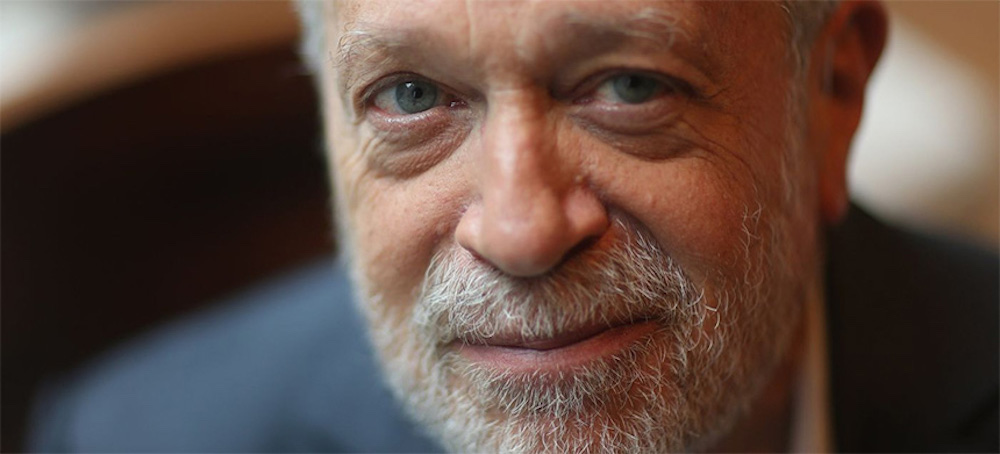Live on the homepage now!
Reader Supported News
The gonzo ethics of seeking to make gobs of money so you can give it away
Today is Giving Tuesday — a day to focus on personal charitable giving to worthy causes.
But what I really want to talk about today is something quite different from charitable giving, although often confused with it: It’s called “effective altruism.” Known as EA to its practitioners, effective altruism urges people to give away a large share of their incomes.
Fine as far as it goes. But EA has been going much further.
One of EA’s most influential proponents is the Oxford philosopher William MacAskill, who has urged young people to seek high-paying jobs in finance (or wherever else they can make gobs of money) on ethical grounds, because they can then donate a large portion of their earnings to worthy causes. For example, by becoming a hedge-fund mogul, MacAskill says, you can donate large sums — and create far more good — than you can as a social worker.
Or to take a different example, MacAskill argues that a young person concerned about the world’s poor could become a doctor in a poor country and possibly save the equivalent of 140 lives in their medical career. But if they took a job that paid them hundreds of millions of dollars, and then donated a big portion of it intelligently, they could save ten times as many lives.
Sounds logical. But wait.
MacAskill’s utilitarian logic leaves out the social costs associated with how a talented young person might make gobs of money in the first place. (One red flag: Elon Musk claims that MacAskill’s giving philosophy is similar to his own.)
MacAskill’s logic also fails to capture the corrupting influence of hedge funds, private-equity, crypto, or other ultra-profit-driven institutions on the people within them. Even if you had charitable impulses at the start, once surrounded by money-driven zombies you might easily lose those impulses.
Consider Sam Bankman-Fried — an avowed practitioner of EA — whose off-shore crypto Ponzi scheme FTX just collapsed, taking billions of dollars of customers’ savings with it.
Before the collapse, Bankman-Fried was worth $24 billion and pledged to donate a large portion of it to EA causes.
Last February, Bankman-Fried created the philanthropic FTX Future Fund to put his EA ideas into practice, naming William MacAskill as an adviser.
Some of FTX’s funds went into sleek ads touting his dedication to “positive social change” (such as the one I’ve posted here, featuring the runway supermodel Gisele Bündchen. which appeared in The New Yorker.) “Whenever someone is willing to commit to change, I’m willing to help,” Bündchen said at the SALT Crypto conference in Nassau, Bahamas last April. “Sam is making such an important statement with this, and I’ve found that inspirational.”
Inspirational?
FTX spent an estimated $20 million on the ad campaign (featuring other celebrities such as Tom Brady) and bought the naming rights to the Miami Heat’s arena for $135 million.
Bankman-Fried and other FTX executives also showered nearly $72 million on lawmakers in both parties during the 2022 midterms — all but guaranteeing a “favorable business climate” (aka zero regulation) for his crypto exchange.
Charity is important, and I hope you will be generous today, and all other days.
But what if charity by the ultra-wealthy is just a cover for their greed? Shouldn’t we be concerned about how they accumulate their fortunes?
And shouldn’t we worry a bit about what happens to people — even those with the best of intentions — who join institutions dedicated to making gobs of money?
So-called “philanthropists” like Bankman-Fried — who shaft millions of creditors, undermine social trust, and crash our democracy with their political donations — have probably made the world worse off, their beneficence notwithstanding.
On Nov. 11, the day FTX filed for bankruptcy, William MacAskill wrote in a Twitter thread:
“For years, the EA community has emphasized the importance of integrity, honesty, and the respect of common-sense moral constraints. If customer funds were misused, then Sam did not listen; he must have thought he was above such considerations. A clear-thinking EA should strongly oppose ‘ends justify the means’ reasoning.
But isn’t “ends justify the means reasoning” at the heart of MacAskill’s ethics, urging young people to make gobs of money as bankers or crypto moguls so they can make large charitable donations?
Follow us on facebook and twitter!
PO Box 2043 / Citrus Heights, CA 95611



No comments:
Post a Comment
Note: Only a member of this blog may post a comment.